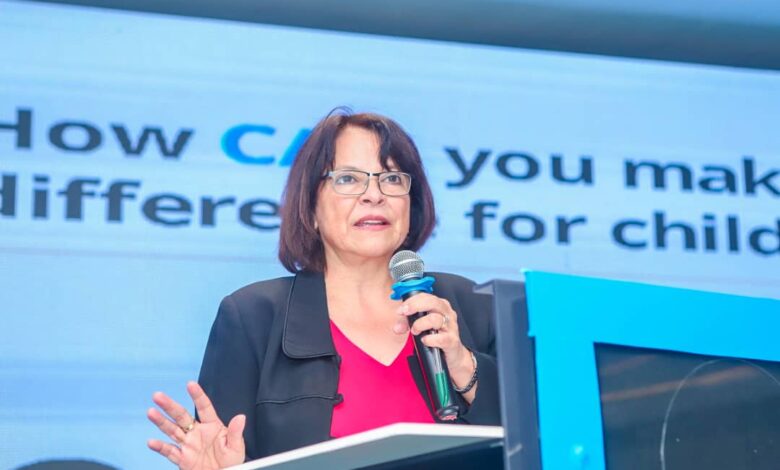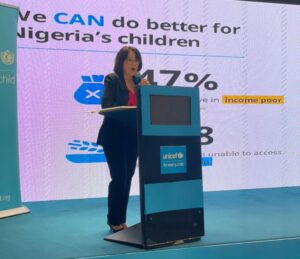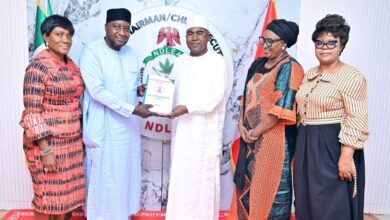
The United Nations Children’s Fund (UNICEF) has called for the mainstreaming of child rights for safety, nutrition, and protection from climate change, among others in Nigeria.
This is in collaboration with the Federal Ministry of Budget and National Planning, the Nigerian Guild of Editors (NGE), and the Diamond Award for Media Excellence (DAME).
The event was held at the Radisson Blu Hotel, Lagos with the theme: “Reinforcing the Role of the Media in Mainstreaming Child Rights” on Saturday, November 30, 2024.

It had in attendance, stakeholders in the media industry, officials from the Ministry of Education, representatives from the private sector, influencers, and advocates.
UNICEF Country Representative, Christian Mundute, in her paper titled ‘The State of Nigeria’s Children: Summary of the 2024 Situational Analysis of Children and Adolescents in Nigeria,’ noted that the challenges confronting Nigerian children are numerous.
This she said includes multiple forms of poverty, poor access to healthcare, lack of access to sanitation facilities, violence against children, and malnutrition.
Her words: “2.1 million children in the country still have no dose of any vaccine, and these children are at high risk of getting any preventable disease.
“Almost 10 million children at primary school age are not attending school due to different factors like services and security. We know that parents want to protect their children, so they prefer not to send them to school.

“Also, poverty plays a critical role; 10 million children in primary school and more or less 8 million plus in junior high school need to have the opportunity to be educated. It is important to create awareness through stories and to show more of what is happening.
“The more you inform the public on the successes made, the more opportunities there are to scale them up. If open defecation ends in Nigeria, there will be a dramatic change in the health status of children around the country.
”It would culminate in the end of polio, cholera, diarrhoea, diphtheria, and a lot of other illnesses. Right now, the challenge is huge, so we hope to accelerate progress by leveraging a stronger partnership with the media.”
Also speaking, President of the Nigerian Guild of Editors, Eze Anaba emphasised the importance of such collaborations to strengthen public knowledge on the existing challenges that affect children and urged the media to rise to their responsibilities.
According to him, the media remains a dominant force in shaping public opinions and must actively engage existing social issues to proffer solutions through data-driven journalism focused on positively impacting society.
He said: “As journalists, we are confronted daily by existential issues. The media is not just a passive observer of society. It is an active participant in shaping societal norms and influencing policies. Our role in mainstreaming child rights is as important as any other stakeholder.

“We must uncover and amplify the voices of the voiceless by highlighting the challenges children face. The narrative we create can inspire, mobilise, and drive change. Today, I urge us all to channel this power towards a cause that demands our collective attention. The rights and well-being of Nigerian children”.
On his part, Tunde Onakoya, founder of the Chess in Slums Africa highlighted that nearly half of seven million Nigerian children live in abject poverty, with Nigeria being one of the countries with the youngest population in the world.
He warned that if deliberate measures are not taken to invest in the capacity of Nigerian children, they will have no part to play in the world’s future.
“The real Nigerian challenge is the struggle of the Nigerian child. Nigeria is going to be the future workforce in the world in the next 50 years like Europe. If we have 20 million children out of school that do not have any skills or education, how would they participate in that future?
“There really would be no place for them in the world if they don’t have the education to contribute meaningfully to global markets. So what happens is that they will become liabilities in the future because they have no value to give. The world wants assets, and it desires an educated workforce to come and build economies”.







